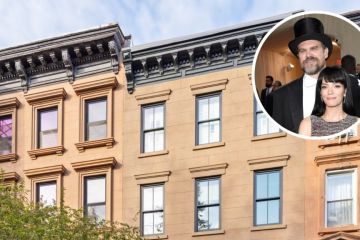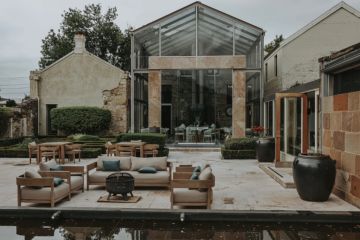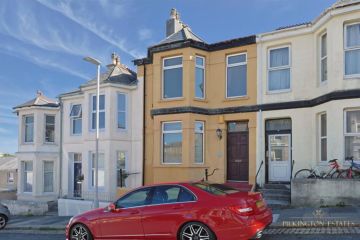Whelan the Wrecker: A well-known Melbourne name reborn to reuse and re-mill
Well knock me down. Look who is still here. Melbourne’s most famous — or infamous — demolition company, the once family-owned firm of Whelan the Wrecker that is credited with radically recasting the look of Marvellous Melbourne, is still operating.
But these days, and owned since 1991 by the Delta Group, Australia’s largest demolition company, Whelan the Warehouse is working at the noble end of the building deconstruction industry, which guarantees, according to staff, “that we get all the good stuff”.
Operating out of a giant former WWII aircraft hangar at Fishermans Bend, the business saves, resells and re-mills seasoned timbers, and makes commissioned furniture out of the salvage of wrecked structures located anywhere from Queensland to WA.
Sometimes, says warehouse manager Emma Kirkham, timber bought from Queensland will go back there to feature in some high-end new building where an architect or developer wants to show off the colourations and nature-wrought figurations that can reflect hundreds of years of growth in Australian hardwoods.
When a load of metres-long Red gum slabs, taken from the same Queensland tree, arrived in the warehouse recently, in-house furniture maker and salesman Ollie Carrel says a frisson of longing went through the staff “because we were all thinking what we could do with it?”
Like the ancient Tasmanian hydro woods; the Huon and Celery top pines, the Sassafras and Tasmanian Blackwoods being retrieved from the bottom of Lake Pieman, the single Red gum slabs that could be used for bar-tops or board-room tables, sell for top dollars: about $2800 for the big bits of Red gum, or $5000 for a three-metre slab of the hydro wood that has such rarity it is known internationally.
Kirkham says a new growth edge for the firm said to have one of the best-known brand names in Melbourne’s history will be to develop that offshore market, and potentially “to exchange our Australian timbers for American oaks and walnuts”.
- Related: More space in a tiny old house
- Related: Awarding an 1840s Gippsland salvage
- Related: Mansion demolition creates expensive dust
More stable than newly-milled timber and often more expensive because, the current labour cost of salvaging heritage materials is high — unlike the days when Whelan the Wrecker’s sledge-hammer teams were scrambling over city demolition jobs without safety harnesses or scaffolding.
Whelan the Wrecker was started by a carter, Jim Whelan, in 1891 and, ending up with remnant scraps from building sites he was delivering to and fetching from, he started a sideline business reselling useful bits of scrap. This gives credence to the claim that the firm was, in effect, Melbourne’s first building recycling company.
Of course, from the 1930s when Whelans took on most of the contracts to demolish Gold Rush buildings in Melbourne’s Golden Mile, through the subsequent six decades Whelans pulled down many of the most beautiful structures the city ever saw.
These included 400 hotels: the Federal and Menzies among them; many gloriously decorated banks and insurance companies such as the Colonial Bank and Joseph Reed’s Bank of NSW which is now part of the frontage of Melbourne University’s School of Design.
In East Melbourne, and in the firm’s wrecking ball “halcyon days” from the 1950s to 1970s, Whelan’s dismantled the bluestone St Patrick’s College and Melbourne’s largest private house, Cliveden, and took a huge bite out of the Parisian pretensions of the top end of Collins Street.
A lot of the broken material went into the company tip in an old Brunswick quarry. But to the delight of people like Justus Jorgensen, who was creating his fantasy chateau Monstsalvat in Eltham, other elements ended up in Whelan’s Sydney Road resale yard. Montsalvat’s Gothic windows came from a magnificent city insurance building.
It was Whelan’s that rescued the Skipping Girl Vinegar sign, which was reinstated as a landmark on Victoria Street, Richmond.
This four-generation company — concurrently enemy of those who appreciated heritage and friend to those who could get their hands on amazing old structural elements — was wound up after 100 years in 1991. But the name was to continue.
While the family donated a large cache of company-associated paraphernalia to the Melbourne Museum, Delta Group founder Con Petropoulos bought the name for $50,000.
“Everyone knows the name”, says Carrel. “At a recent home show, people were coming up to our stand and saying, ‘Are you…?’
“Yes,” he was happy to reply. “We are.”
We recommend
States
Capital Cities
Capital Cities - Rentals
Popular Areas
Allhomes
More






